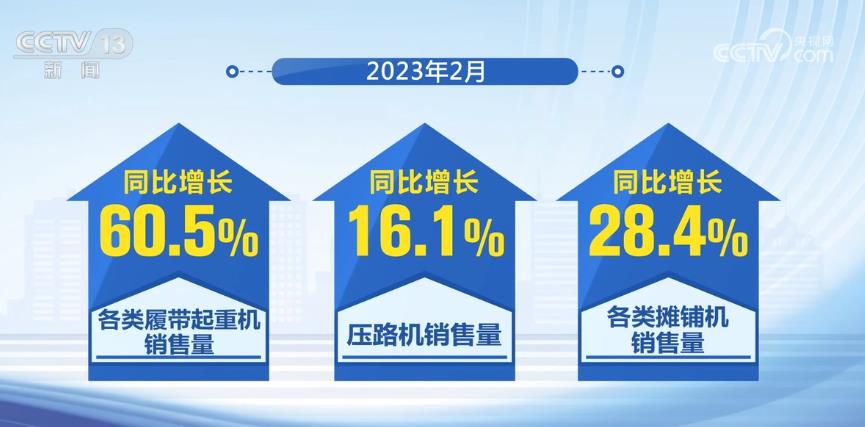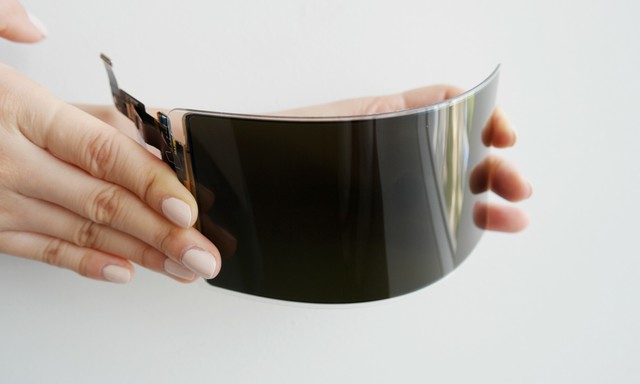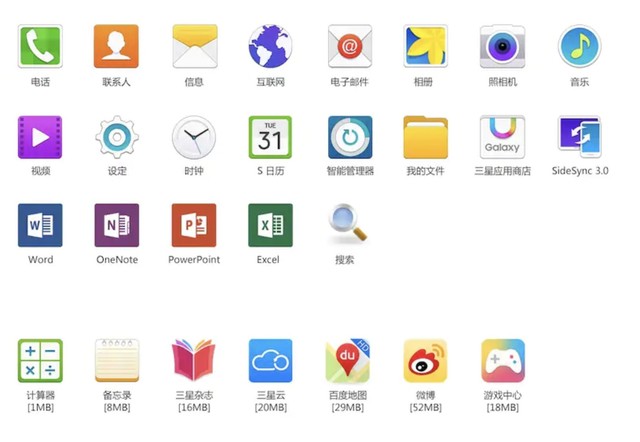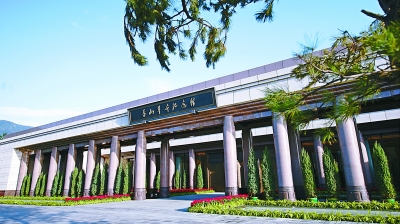Chapter I General Provisions
the first In order to ensure that employees and retirees get basic medical care and enjoy medical insurance benefits when they are sick, these Provisions are formulated in accordance with the relevant provisions of the state and combined with the actual situation of this Municipality.
the second These Provisions shall apply to all employers in cities and towns within the administrative area of this Municipality, including enterprises, organs, institutions, social organizations, private non-enterprise units (hereinafter referred to as employers) and their employees and retirees.
The specific time for employers, their employees and retirees to participate in the basic medical insurance shall be stipulated by the municipal labor and social security administrative department (hereinafter referred to as the municipal labor and social security administrative department).
Article The municipal labor and social security administrative department is in charge of the city’s medical insurance work, organizes the implementation of the medical insurance system, and is responsible for the management, supervision and inspection of the medical insurance work.
The district and county administrative departments of labor security shall be responsible for the management, supervision and inspection of medical insurance within their respective administrative areas.
Social insurance agencies set up by the municipal, district and county administrative departments of labor security shall specifically handle medical insurance.
Article 4 The basic medical insurance premium shall be borne by both employers and employees, paid jointly and coordinated by the whole city. The basic medical insurance fund implements the principle of combining social pooling with individual accounts. The level of basic medical insurance should be compatible with the development level of social productive forces in this Municipality and the affordability of finance, employers and individuals.
Article 5 Based on the implementation of basic medical insurance, this Municipality has established a system of mutual assistance for large medical expenses, implemented the national civil service medical subsidy method, and enterprises and institutions can establish supplementary medical insurance to encourage employers and individuals to participate in commercial medical insurance.
Article 6 Combined with the establishment of the basic medical insurance system, we will actively promote the reform of the medical and health system in cities and towns, and provide relatively high-quality medical services for employees and retirees at relatively low costs to meet the needs of the broad masses of people for basic medical services.
Chapter II Basic Medical Insurance Fund
Article 7 The basic medical insurance fund should be supported by income and balanced.
Article 8 The basic medical insurance fund consists of the following items:
(a) the basic medical insurance premium paid by the employer;
(two) the basic medical insurance premiums paid by individual employees;
(three) the interest of the basic medical insurance premium;
(four) the basic medical insurance premium payment;
(five) other funds incorporated into the basic medical insurance fund according to law.
Article 9 The basic medical insurance premium is jointly paid by the employer and individual employees. Employers and employees shall pay the basic medical insurance premium in full and on time. If it is not paid in full and on time, regardless of individual account, the basic medical insurance fund will not pay its medical expenses.
Article 10 Employees pay the basic medical insurance premium at 2% of their average salary in the previous year.
If the average monthly salary of employees in the previous year is lower than 60% of the average monthly salary of employees in this city in the previous year, 60% of the average monthly salary of employees in this city in the previous year shall be the base of payment, and the basic medical insurance premium shall be paid.
The part where the average monthly salary of employees in the previous year was higher than the average monthly salary of employees in this city by more than 300% in the previous year will not be used as the base of payment of wages, and the basic medical insurance premium will not be paid.
If it is impossible to determine the average monthly salary of employees in the previous year, the average monthly salary of employees in this city in the previous year shall be the base of payment salary, and the basic medical insurance premium shall be paid.
Article 11 Persons who have retired before the implementation of these Provisions do not pay the basic medical insurance premium. After the implementation of these Provisions, those who have joined the work and paid the basic medical insurance premium for 25 years for men and 20 years for women have gone through the retirement formalities in accordance with the provisions of the state, and those who receive the basic pension or retirement fee on a monthly basis will enjoy the basic medical insurance benefits for retirees and will no longer pay the basic medical insurance premium.
Before the implementation of these Provisions, if he retires after taking part in the work and pays the basic medical insurance premium for less than the period specified in the preceding paragraph, he will enjoy the basic medical insurance benefits for retirees after making up the basic medical insurance premium that should be paid by employers and individuals at one time, and will no longer pay the basic medical insurance premium. As determined by the administrative department of labor and social security, if the continuous length of service or working years of employees meet the requirements of the state, it shall be regarded as the payment period of basic medical insurance.
Article 12 The employer shall pay the basic medical insurance premium at 9% of the sum of all employees’ payment wage bases.
Article 13 When the proportion of basic medical insurance premium needs to be adjusted, it shall be proposed by the municipal labor and social security administrative department in conjunction with the municipal finance department and submitted to the Municipal People’s government for approval.
Article 14 The employing unit shall truthfully declare the average salary of employees in the previous year to the social insurance agency on time, and the social insurance agency shall verify the basic medical insurance payment salary base in accordance with the regulations.
Article 15 The basic medical insurance premium payable by the employer shall be withheld by the social insurance agency on a monthly basis by entrusting the employer’s bank with the settlement method of "entrusting the bank to collect money (no payment period)".
The basic medical insurance premiums payable by individual employees shall be withheld and remitted by the employer from his salary on a monthly basis.
Article 16 The basic medical insurance fund shall be managed as a whole and at different levels in the whole city, all of which shall be included in the financial accounts of social security funds, and the management of revenue and expenditure shall be carried out separately.
The basic medical insurance fund shall be earmarked for special purposes, and shall not be misappropriated or used to balance fiscal revenue and expenditure.
Article 17 The part raised by the basic medical insurance fund in that year shall bear interest according to the bank deposit interest rate; The fund principal and interest carried forward from the previous year shall bear interest at the bank deposit rate of lump-sum deposit for 3 months; The deposit fund deposited in the financial special account of the social security fund shall bear interest according to the three-year zero deposit and lump-sum savings deposit interest rate, which is not lower than the interest rate of this grade.
Article 18 The basic medical insurance fund implements a unified social insurance budget and final accounts system, financial accounting system and internal audit system.
Chapter III Individual Accounts of Basic Medical Insurance
Article 19 Social insurance agencies shall establish individual accounts for basic medical insurance for employees and retirees (hereinafter referred to as individual accounts).
Article 20 An individual account consists of the following items:
(a) the basic medical insurance premiums paid by individual employees;
(two) the basic medical insurance premium paid by the employer in accordance with the regulations;
(3) Interest on the amount stored in individual accounts;
(four) other funds into the personal account according to law.
Article 21 Part of the basic medical insurance premium paid by the employer shall be included in the personal account according to the following standards:
(a) employees under the age of 35 are included in personal accounts at 0.8% of their monthly salary base;
(two) employees over the age of 35 but under the age of 45 are included in individual accounts according to 1% of their monthly salary base;
(three) employees over the age of 45 are included in personal accounts according to 2% of their monthly salary base;
(4) Retirees under the age of 70 shall be transferred to individual accounts according to 4.3% of the average monthly salary of employees in this Municipality in the previous year;
(five) retirees over the age of 70 were transferred to individual accounts according to 4.8% of the average monthly salary of employees in this Municipality in the previous year.
When the standards listed in the preceding paragraph need to be adjusted according to social and economic development and fund revenue and expenditure, the municipal labor and social security administrative department shall, jointly with the municipal finance department, put forward an adjustment plan, which shall be promulgated and implemented after being approved by the Municipal People’s government.
Article 22 The amount stored in individual account shall be calculated with reference to deposit interest rate, a resident of the bank in the same period every year.
Article 23 The principal and interest of individual accounts are owned by individuals and can only be used for basic medical insurance, but they can be carried forward and inherited.
When employees and retirees die, the amount stored in their personal accounts is included in the personal accounts of their heirs; If the heir does not participate in the basic medical insurance, the amount stored in the personal account can be paid to the heir in one lump sum; If there is no heir, the amount of personal account storage will be included in the basic medical insurance pooling fund.
Article 24 Unemployed people do not pay the basic medical insurance premium, personal accounts stop being included, and the balance can continue to be used. During the period of receiving unemployment insurance benefits, the unemployed enjoy Medicaid treatment in accordance with the provisions of unemployment insurance.
Article 25 When the personnel participating in the basic medical insurance flow in the insured districts and counties, only the basic medical insurance relationship is transferred, and the personal account storage amount is not transferred; Cross-regional, county or cross-regional flow, the transfer of basic medical insurance relations, while transferring personal account storage.
Chapter IV Basic Medical Insurance Benefits
Article 26 The basic medical insurance fund and individual account shall delimit their respective payment ranges, and shall be accounted for separately, and shall not occupy each other. In accordance with the basic medical insurance fund to pay the scope of medical expenses, paid by the basic medical insurance fund and individual accounts.
Article 27 The basic medical insurance fund shall pay the medical expenses of employees and retirees, which shall conform to the list of basic medical insurance drugs, the list of diagnosis and treatment items, the scope of service facilities and the payment standards stipulated by this Municipality.
The list of basic medical insurance drugs, the list of diagnosis and treatment items, the scope of medical service facilities and the specific measures for payment standards shall be formulated separately by the municipal labor and social security administrative department in conjunction with relevant departments.
Article 28 Personal account to pay the following medical expenses:
(a) outpatient and emergency medical expenses;
(two) the cost of purchasing drugs at designated retail pharmacies;
(three) the basic medical insurance fund Qifubiaozhun below the medical expenses;
(four) medical expenses that exceed the threshold of the basic medical insurance pooling fund and should be borne by individuals in proportion.
The insufficient part of the personal account is paid by myself.
Article 29 The basic medical insurance fund pays the following medical expenses:
(1) Medical expenses for hospitalization;
(two) emergency rescue and hospitalization, the medical expenses within 7 days before hospitalization;
(three) the outpatient medical expenses of radiotherapy and chemotherapy for malignant tumors, renal dialysis and taking anti-rejection drugs after renal transplantation.
Article 30 The basic medical insurance fund shall not pay the following medical expenses:
(a) to see a doctor in a medical institution other than my designated medical institution, except for emergency treatment;
(2) purchasing drugs in non-designated retail pharmacies;
(3) Injuries caused by traffic accidents, medical accidents or other liability accidents;
(four) because I take drugs, fight or other illegal acts caused by injury;
(five) due to suicide, self-mutilation, alcoholism and other reasons for treatment;
(6) being treated abroad or in Hongkong, Macao Special Administrative Region and Taiwan Province;
(seven) in accordance with the provisions of the state and the city should be paid by the individual.
Article 31 Medical expenses incurred by employees of enterprises who suffer from work-related injuries and occupational diseases shall be implemented in accordance with the relevant provisions of industrial injury insurance. The medical expenses for the birth of female employees shall be implemented in accordance with the relevant provisions of the state and this Municipality.
Article 32 Qifubiaozhun for basic medical insurance co-ordination fund payment is determined by about 10% of the average wage of employees in this city in the previous year. The qifubiaozhun for the medical expenses incurred by an individual in hospitalization for the second time and later in a year is determined by about 5% of the average wage of employees in this city in the previous year.
Article 33 The cumulative maximum payment limit of medical expenses paid by the basic medical insurance pooling fund to employees and retirees in a year is determined by about 4 times of the average salary of employees in this city in the previous year.
Article 34 When the Qifubiaozhun and the maximum payment limit paid by the basic medical insurance pooling fund need to be adjusted, it shall be proposed by the municipal labor and social security administrative department in conjunction with the municipal finance department, and shall be released by the municipal labor and social security administrative department after being reported to the Municipal People’s government for approval.
Article 35 The basic medical insurance pooling fund sets the settlement period for paying medical expenses.
The settlement period is set according to the time of hospitalization of employees and retirees, radiotherapy and chemotherapy for malignant tumors, renal dialysis and outpatient treatment with anti-rejection drugs after renal transplantation.
Article 36 In a settlement period, the medical expenses incurred by employees and retirees shall be calculated by sections and paid cumulatively according to the level of the hospital and the amount of expenses, and shall be shared by the basic medical insurance fund and individuals according to the following proportions:
(1) Medical expenses incurred in tertiary hospitals:
1 Qifubiaozhun to 30 thousand yuan, 85% of the overall fund to pay, workers pay 15%;
2 more than 30 thousand yuan to 40 thousand yuan, the overall fund to pay 90%, 10% workers pay;
3 more than 40 thousand yuan, the overall fund to pay 95%, workers pay 5%.
(two) medical expenses incurred in secondary hospitals:
1 Qifubiaozhun to 30 thousand yuan, 87% of the overall fund to pay, workers pay 13%;
2 more than 30 thousand yuan to 40 thousand yuan, the overall fund to pay 92%, 8% workers pay;
3 more than 40 thousand yuan, the overall fund to pay 97%, workers pay 3%.
(3) Medical expenses incurred in first-class hospitals and family beds:
1 Qifubiaozhun to 30 thousand yuan, 90% of the overall fund to pay, workers pay 10%;
2 more than 30 thousand yuan to 40 thousand yuan, the overall fund to pay 95%, workers pay 5%;
3 more than 40 thousand yuan, the overall fund to pay 97%, workers pay 3%.
(4) The individual payment ratio of retirees is 60% of that of employees.
However, the maximum amount paid by the basic medical insurance pooling fund in proportion shall not exceed the maximum payment limit stipulated in Article 33 of these Provisions.
When the payment ratio of the basic medical insurance fund listed in the first paragraph of this article needs to be adjusted, the municipal labor and social security administrative department shall, jointly with the municipal finance department, put forward an adjustment plan, which shall be promulgated and implemented after being approved by the Municipal People’s Government.
Chapter V Supplementary Medical Insurance
Article 37 Establish a mutual aid system for large medical expenses. The mutual fund for large medical expenses pays the medical expenses of employees and retirees that exceed a certain amount of outpatient and emergency medical expenses and exceed the maximum payment limit of the basic medical insurance pooling fund (excluding Qifubiaozhun and personal burden) in proportion within one year. Employers and their employees and retirees who participate in the basic medical insurance shall participate in mutual assistance for large medical expenses, except for employers and their employees and retirees who implement the national civil service Medicaid measures.
Measures for mutual assistance of large medical expenses shall be formulated by the municipal labor security administrative department in conjunction with the municipal finance department.
Article 38 Mutual funds for large medical expenses are jointly paid by employers and individuals. The employer shall pay 1% of the sum of all employees’ salary bases, and the employees and retirees shall pay in 3 yuan every month.
Large mutual funds for medical expenses shall be paid together with the basic medical insurance premium every month.
When the mutual funds for large medical expenses are insufficient to pay, the finance will give appropriate subsidies. When the proportion and amount of mutual funds for large medical expenses need to be adjusted, it shall be proposed by the municipal labor and social security administrative department in conjunction with the municipal finance department and reported to the Municipal People’s government for approval.
Article 39 Large mutual funds for medical expenses shall be co-ordinated in the whole city, accounted for separately, included in the financial accounts of social security funds, and bear interest according to the interest-bearing method of basic medical insurance funds.
The social insurance agency is responsible for the unified collection, management and use of mutual funds for large medical expenses.
Article 40 Mutual funds for large medical expenses shall pay large medical expenses that meet the requirements of basic medical insurance in the following ways:
(a) workers in an annual outpatient and emergency medical expenses accumulated more than 2000 yuan, 50% of the large medical expenses paid by mutual funds and 50% paid by individuals.
(two) retirees in an annual outpatient and emergency medical expenses accumulated more than 1300 yuan, retirees under the age of 70, 70% of the large medical expenses paid by mutual funds, 30% paid by individuals; For retirees over 70 years old, 80% of the large medical expenses are paid by mutual funds and 20% by individuals.
(three) the maximum amount of large medical expenses mutual funds to pay the outpatient and emergency medical expenses of employees and retirees in a year is 20 thousand yuan.
(IV) Hospitalization medical expenses of employees and retirees that exceed the maximum payment limit of the basic medical insurance pooling fund (excluding the part below Qifubiaozhun and personal burden), outpatient medical expenses of radiotherapy and chemotherapy for malignant tumors, renal dialysis and taking anti-rejection drugs after kidney transplantation, 70% of large medical expenses are paid by mutual funds and 30% by individuals. However, the maximum amount paid by mutual funds for large medical expenses in one year is 100,000 yuan.
When the Qifubiaozhun, payment proportion and maximum payment limit of mutual funds for large medical expenses need to be adjusted, the municipal labor and social security administrative department shall, jointly with the municipal finance department, propose it and report it to the Municipal People’s government for approval.
Article 41 Enterprises and institutions participating in basic medical insurance may establish supplementary medical insurance. The part of the supplementary medical insurance premium of an enterprise within 4% of the total wages of its employees is included in the cost.
Measures for supplementary medical insurance shall be formulated by the municipal labor security administrative department in conjunction with the municipal finance department.
Article 42 On the basis of participating in the basic medical insurance, national civil servants enjoy Medicaid treatment. The specific measures are proposed by the municipal labor security administrative department in conjunction with the municipal finance department and implemented after being reported to the Municipal People’s Government for approval.
Article 43 For employees and retirees who enjoy the minimum living guarantee for urban residents in this city, they will be taken care of in the medical expenses borne by individuals.
The city set up medical assistance funds for poor people, and the relevant departments shall take measures to raise funds in various ways to solve the difficulties caused by excessive medical expenses for poor people.
Chapter VI Medical Management
Article 44 The city’s medical insurance implements a designated medical system. According to the principle of "nearby medical treatment and convenient management", employees and retirees can choose 3 to 5 designated medical institutions, which will be summarized by the unit and reported to the social insurance agency in the region and county where the unit is located, and determined by the social insurance agency as a whole. Designated specialist medical institutions and designated Chinese medicine medical institutions are designated medical institutions common to all insured workers and retirees.
When employees and retirees get sick, they can go to my designated medical institutions with medical insurance certificates in accordance with the regulations, or they can buy medicines from designated retail pharmacies with prescriptions issued by doctors in designated medical institutions.
Article 45 Medical institutions and retail pharmacies willing to undertake the designated services of basic medical insurance may apply to the administrative department of labor and social security. Those who meet the requirements shall be identified as designated medical institutions and retail pharmacies by the municipal administrative department of labor and social security, and their qualification certificates shall be issued and announced to the public. Those who have obtained designated qualifications and are identified as designated medical institutions and retail pharmacies shall sign agreements with social insurance agencies.
Measures for the administration of designated medical institutions and retail pharmacies shall be formulated by the municipal labor and social security administrative department in conjunction with the municipal departments of finance, health, traditional Chinese medicine management and drug supervision.
Article 46 Relevant departments should implement dynamic management of designated medical institutions and retail pharmacies. Designated medical institutions and retail pharmacies should strictly implement the price policies and standards stipulated by the state and this Municipality, implement the relevant provisions of the basic medical insurance system, and establish an internal management system that is compatible with the management of basic medical insurance.
Article 47 Designated medical institutions shall set up specialized agencies or full-time staff to be responsible for the specific work of basic medical insurance, strictly implement the regulations and standards of the state and this Municipality on the management of medical services, formulate and implement the routine diagnosis and treatment of common diseases, establish the comprehensive evaluation standard of medical quality and benefit, and accurately provide relevant information on outpatient service, emergency service, hospitalization and single disease of basic medical insurance personnel.
Article 48 Designated retail pharmacies should be staffed with personnel responsible for the specific work of basic medical insurance, abide by the provisions of the state and this Municipality on drug management, and establish a drug quality assurance system to ensure safe and effective drug supply.
Article 49 The part of outpatient and emergency medical expenses and hospitalization medical expenses paid by individuals, as well as the cost of purchasing medicines at designated retail pharmacies, shall be directly settled by individuals and designated medical institutions and retail pharmacies; The medical expenses paid by the basic medical insurance fund shall be settled with the designated medical institutions after being audited by the social insurance agency. The specific measures shall be formulated separately by the municipal labor security administrative department in conjunction with the municipal finance and health departments.
Article 50 Reform the urban medical and health service system and vigorously develop community health services to facilitate people’s medical treatment. By introducing a competitive mechanism, we can curb the excessive growth of medical expenses and reduce the burden on the people and society. Establish a new classified management system for medical institutions, implement separate accounting, separate management and centralized bidding and purchasing systems for drugs, and strengthen supervision over medical services and drug prices.
Chapter VII Organization, Management and Supervision
Article 51 The medical insurance in this Municipality implements a system of separate administration, fund management and affairs handling.
Article 52 The responsibilities of the administrative department of labor security are:
(a) to implement the laws, regulations and relevant provisions of medical insurance;
(2) Organizing the implementation of the medical insurance system;
(3) To study and formulate policies and development plans for medical insurance;
(four) to guide the work of social insurance agencies;
(five) to supervise and inspect the collection of medical insurance premiums and the payment of medical insurance funds;
(six) supervision and inspection of the implementation of the provisions of the basic medical insurance in designated medical institutions and retail pharmacies.
Article 53 The responsibilities of social insurance agencies are:
(a) responsible for the collection of medical insurance premiums and the payment and management of medical insurance funds in accordance with the regulations;
(two) the preparation of medical insurance fund budget and final accounts;
(3) Establishing and managing individual accounts for basic medical insurance in accordance with regulations;
(4) signing agreements with designated medical institutions and retail pharmacies in accordance with regulations, examining and paying medical insurance fees, and guiding the medical insurance work of designated medical institutions and retail pharmacies;
(five) to provide medical insurance inquiry and consulting services;
(six) other duties stipulated by the state and this Municipality.
Article 54 The funds required by the social insurance agency shall be included in the financial budget and allocated by the finance.
Article 55 Labor and social security, health, Chinese medicine management, drug supervision, price and other departments should strengthen the management, supervision and inspection of employers and individuals participating in medical insurance, designated medical institutions and designated retail pharmacies.
Employers and individuals participating in medical insurance, designated medical institutions, and designated retail pharmacies violate these provisions and defraud medical insurance funds. The administrative department of labor security will record them in the medical insurance credit information system and implement key supervision and inspection. Necessary restrictive measures can be taken during key supervision and inspection.
Article 56 The financial and auditing departments shall be responsible for supervising the income and expenditure and management of medical insurance funds of social insurance agencies according to law.
Article 57 The Social Insurance Supervision Committee is responsible for supervising the implementation of relevant laws, regulations and policies and the management of medical insurance funds in accordance with relevant regulations.
Chapter VIII Legal Liability
Article 58 If the employer fails to pay the basic medical insurance premium or large mutual funds for medical expenses in accordance with the regulations, resulting in the failure to transfer the basic medical insurance fund into individual accounts in accordance with the regulations, and the employees and retirees cannot enjoy the relevant medical insurance benefits, the employer shall compensate the employees and retirees for the losses caused thereby.
Article 59 If the employer fails to pay the basic medical insurance premium in accordance with the provisions or fails to declare the basic medical insurance payment wage base in accordance with the provisions, resulting in the omission or underpayment of the basic medical insurance premium, or fails to withhold and remit the basic medical insurance premium in accordance with the provisions, the administrative department of labor security shall order it to pay within a time limit; Fails to pay, in addition to repay the amount owed, from the date of default, a daily surcharge of 2/1000.
Article 60 If the employer fails to participate in the basic medical insurance and pay the basic medical insurance premium in accordance with the regulations, the administrative department of labor and social security shall punish it in accordance with the provisions of the Provisional Regulations on the Collection and Payment of Social Insurance Fees in the State Council.
Article 61 If the employer defrauds the medical insurance fund, the social insurance agency shall recover the defrauded fund, and the administrative department of labor security shall impose a fine of more than 1 time and less than 3 times on the employer; If the circumstances are serious enough to constitute a crime, criminal responsibility shall be investigated according to law.
Article 62 Individuals who participate in medical insurance resort to deceit to defraud medical insurance benefits, or resell drugs reimbursed by the medical insurance fund to seek improper benefits, resulting in the loss of the medical insurance fund, the administrative department of labor security shall order them to return, and impose a fine of more than 1 time and less than 3 times the amount of the medical insurance fund defrauded by the individual; If the circumstances are serious enough to constitute a crime, criminal responsibility shall be investigated according to law.
If the acts mentioned in the preceding paragraph have not caused losses to the medical insurance fund, the administrative department of labor security may impose a fine of not more than 1000 yuan on the individual.
Article 63 Designated medical institutions have one of the following acts, resulting in the loss of the basic medical insurance fund, it shall compensate for the losses, and the administrative department of labor security shall order it to make corrections, and may impose a fine of more than 5,000 yuan and less than 20,000 yuan; If the circumstances are serious, the qualification of designated medical institutions for basic medical insurance shall be cancelled:
(a) the medical expenses of those who have not participated in medical insurance are paid by the basic medical insurance pooling fund or the large medical expenses mutual fund;
(two) the medical expenses that should be borne by individuals are paid by the basic medical insurance fund or the large medical expenses mutual fund;
(three) the expenses of non-emergency and rescue patients are included in the emergency and rescue projects;
(four) hospitalization of patients who do not meet the hospitalization standards, or deliberately extend the hospitalization time of patients, or pretend to be hospitalized or falsify medical records;
(five) misappropriation of other people’s personal accounts;
(six) resort to deceit, drug exchange;
(seven) by other means to defraud medical insurance.
If one of the acts mentioned in the preceding paragraph has not caused losses to the medical insurance fund, the administrative department of labor security may impose a fine of not more than 5,000 yuan on the designated medical institution.
Article 64 Designated retail pharmacies have one of the following acts, and the administrative department of labor security shall impose a fine of 20 thousand yuan or more from 1000 yuan; If the circumstances are serious, the qualification of designated retail pharmacies shall be cancelled:
(1) Failing to sell drugs according to external prescriptions;
(two) not according to the prescription dosage;
(three) the prescription drugs are replaced by other items.
Article 65 Designated medical institutions and retail pharmacies in violation of medical treatment, drugs, prices and other management regulations, the administrative department of labor security shall be submitted to the relevant departments for handling; If the circumstances are serious, its fixed-point qualification shall be cancelled.
Article 66 If the staff of the social insurance agency violates the medical insurance regulations, resulting in the loss of the medical insurance fund, the administrative department of labor security shall order it to recover; If the circumstances are serious, administrative sanctions shall be imposed according to law.
Article 67 If the staff of social insurance agencies fail to perform their duties and pay medical insurance benefits in accordance with the regulations, the administrative department of labor security shall criticize them and order them to make corrections; If serious consequences are caused, administrative sanctions shall be imposed according to law.
Article 68 The administrative department of labor and social security, social insurance agencies staff abuse of power, corruption, dereliction of duty, resulting in the loss of medical insurance fund, by the administrative department of labor and social security to recover the loss of medical insurance fund; If the case constitutes a crime, criminal responsibility shall be investigated according to law; Those who have not constituted a crime shall be given administrative sanctions according to law.
Article 69 Units or individuals who misappropriate medical insurance funds shall be dealt with in accordance with the provisions of Article 28 of the Provisional Regulations on the Collection and Payment of Social Insurance Fees in the State Council.
Chapter IX Supplementary Provisions
Article 70 The medical treatment of retired personnel, the old Red Army, and disabled revolutionary servicemen above Class B will remain unchanged, and the medical expenses will be solved according to the original funding channels. Specific measures shall be formulated by the municipal administrative department of labor and social security jointly with relevant departments and submitted to the Municipal People’s government for approval.
Article 71 Urban individual industrial and commercial households and their employees shall refer to these regulations.
Article 72 These Provisions shall come into force as of April 4, 2001.












 Zhongxing Axon M
Zhongxing Axon M

 The foldable feature of Samsung OLED screen is the basis of folding screen mobile phone (picture from wccftech.com).
The foldable feature of Samsung OLED screen is the basis of folding screen mobile phone (picture from wccftech.com).






